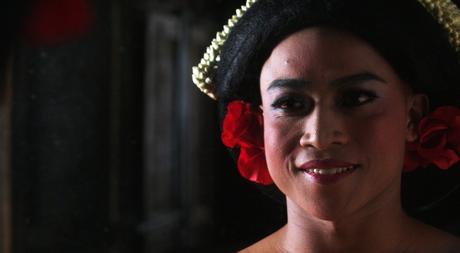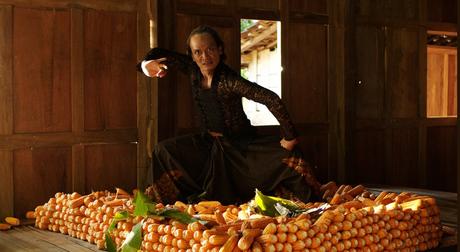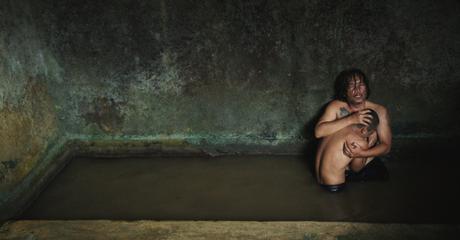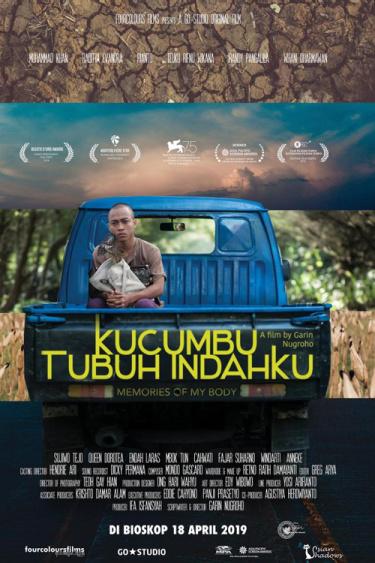Also titled as Memories of My Body, Garin's Kucumbu Tubuh Indahku presents a melancholy tale of mysticism, philosophy and sensualism about human body through a gender variant dancer.

Long-time, eclectic Indonesian director, Garin Nugroho, returns with a meditative picture, Kucumbu Tubuh Indahku (also known as Memories of My Body), about gender and the mysticism of human body. His new film, inspired by the harsh life of Japan-based Indonesian dancer, Rianto, and many other traditional dancers living in the rural area of Java, is not only visually, contextually, subtextually and substantially rich, but it's also thought-provoking.
The director divides the story into some fragments of memories, signifying specific steps in the life journey of Wahyu Juno as a child (portrayed by Raditya Evandra) and a teenager (portrayed by Muhammad Khan). Juno is a composite character, an amalgamation of the memory that Rianto and other dancers stored in their bodies. In unraveling the memory, each fragment is ushered in and framed with an elusive monologue sentimentally delivered by Rianto, who also portrays the grown-up Juno. The words he says are often poetical, philosophical and full of allusions. While baffling mostly, those monologues functions as subtle hints to what occurred in Juno's life during the fragment and, most importantly.

Kucumbu Tubuh Indahku often bespeaks about how the concept of gender over-perplexes especially in the heteronormative society, predicated by gender binary. Set in the said society which also values superstitions and embraces the newly born democracy (the latter part of the film pictures how the rural community clumsily adapts to the fall of the New Order regime), people who "deviate" from the kismet is often deemed unruly. Juno, throughout the movie, struggles as he "holds back" the urging femininity that crawls along his masculine body. Oftentimes, the exploration of his own sexuality and the questions to understand his own body are followed by tragedies, witnessed by his very eyes, leaving him with no definite answer. Garin's script is thoughtful; it interestingly puts a gender variant character, Juno, to be named after the Hindu mythology character, Arjuna-who is often depicted as an example of gender variance, occupying traits that does not belong to both genders.
There is a war inside Juno's body, but there's sanctuary in the very same body, as well. Earlier in the film, Kucumbu Tubuh Indahku shows us how Juno values seclusion and solitary moment. Part of the reason is the absence of a mother figure in his early life, forcing him to survive on his own while his traumatized father found it hard to cope up the family's history (Garin carefully inserts a subtext about the country's infamous genocide as well). Another part is his feeling of freedom in moving his body graciously; it is only natural for him to move in a way the feminine gender can afford to have. Dance is one of the medium where he can move his body the way he wants it to be; and, Lengger Dance, a folk dance enables him to do so. Therefore, he resorts himself to the world of dance.
As the film goes and Juno grows, the problem has become more explicit. Garin Nugroho makes a contrasted view on how femininity is compared to the harsh masculinity. This segment is displayed in the later fragment in which Juno assists a martial art fighter (Randy Pangalila in a surprisingly incredible performance) to prepare for a grand match. Even further, Garin brings the gender discourse to the dancing movement. In the final fragments, Juno meets another troupe of Lengger dancers; at the same time, he encounters a Warok (playwright and senior actor, Whani Dharmawan, in one of the his best performances) from the troupe of Reog Ponorogo, which exhibits the masculinity of dance. Even when the story hints same-sex attraction, Kucumbu Tubuh Indahku puts a strong imagery there that it's a story about Juno and his body; and, this surging femininity wasn't about sexual attraction, but the urgency from the inside to embrace the what Juno's body want it to be.

With its study of gender and the mysticism of human body along with the political, socio-cultural subtexts, Kucumbu Tubuh Indahku presents a thought-provoking meditation. It often poses questions, but never goes too confidently to provide answers; instead, it probes discussion about gender in the society. It's clever and sensitive; important and reflective.
Kucumbu Tubuh Indahku (2019)Memories of My Body


Drama Written & Directed by: Garin Nugroho Starred by: Rianto, Raditya Devandra, Muhammad Khan, Whani Dharmawan, Rifnu Wikana, Randy Pangalila Runtime: 106 mins
FilmIndonesia.or.id
